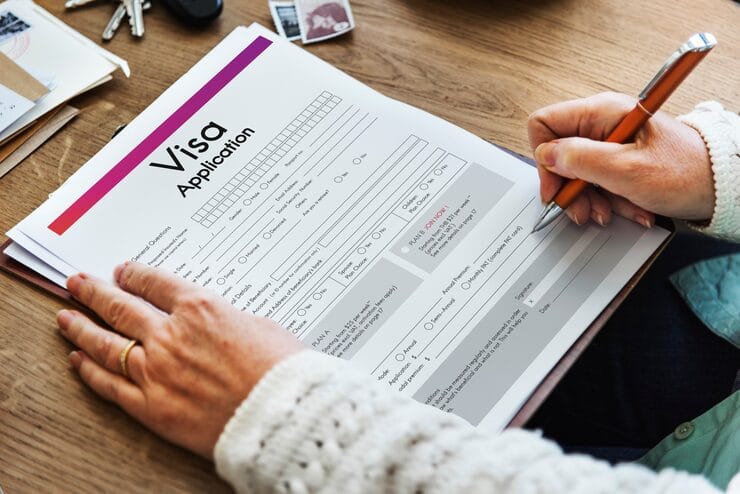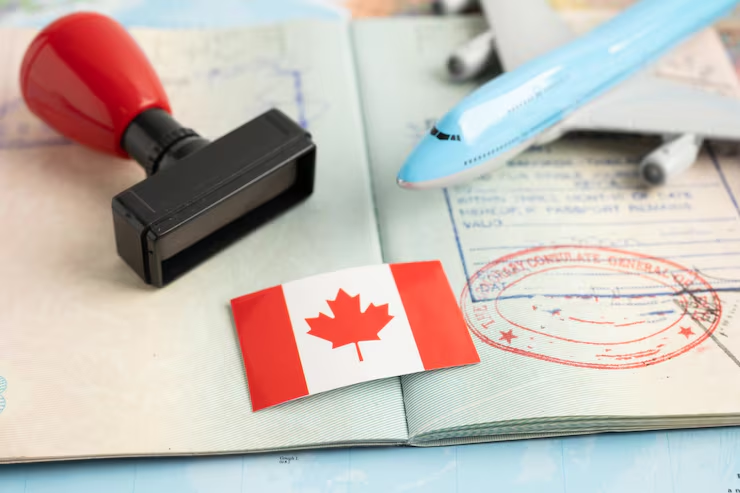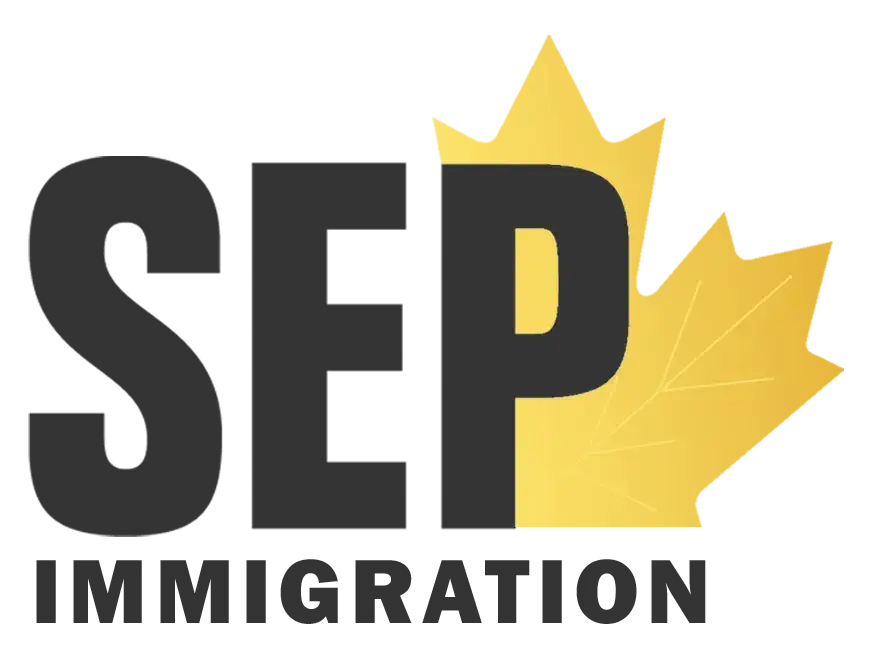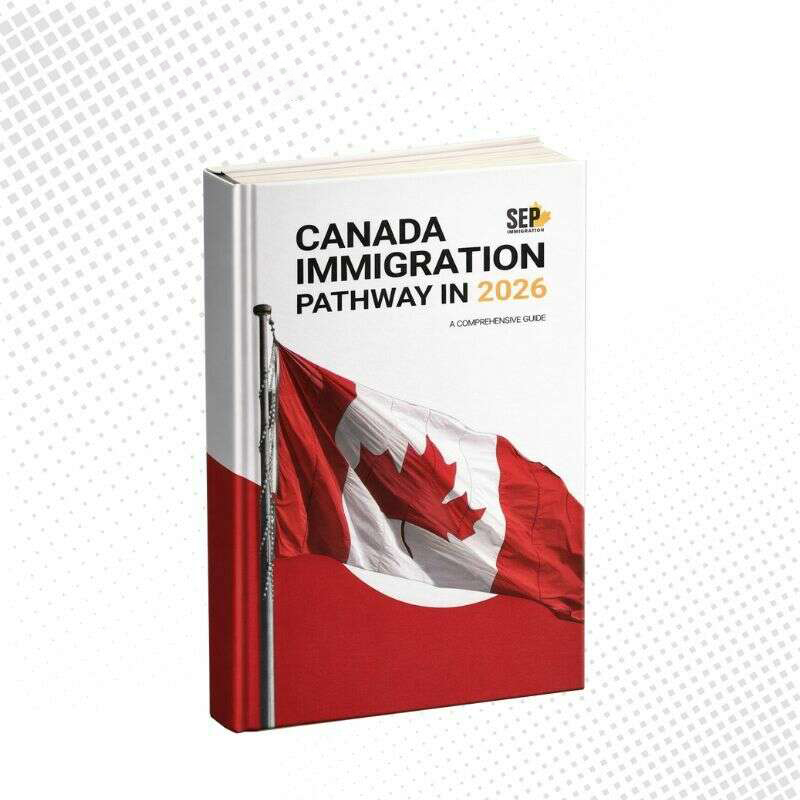
The Federal Skilled Worker Program (FSWP) is a primary route for skilled individuals seeking permanent residency in Canada. Managed through the Express Entry system, it is designed for candidates who have the necessary foreign work experience, skills, and education.
For individuals looking to understand more about employment opportunities in Canada, it’s important to explore different Work Permits available for various categories of workers.
Unlike other programs, such as the Canadian Experience Class (CEC) and the Federal Skilled Trades Program (FSTP), the FSWP does not require prior Canadian work experience. Instead, it focuses on a points-based system to select the highest-ranking candidates.
Table of Contents
ToggleWhat is the Federal Skilled Worker Program (FSWP)?
The FSWP is a federal initiative designed to evaluate candidates based on their skills and capacity to contribute economically. As one of the streams under Express Entry, it focuses on applicants with valuable experience in skilled professions and a desire to integrate into the Canadian workforce.
Who Is Eligible to Apply Under the FSW Program?
Eligibility for the FSW Program hinges on meeting the minimum requirements across three critical areas:
- Skilled Work Experience: Applicants must have at least one year of continuous full-time paid work experience, or an equivalent in part-time work, within the last decade. This experience must fall under the National Occupational Classification (NOC) TEER categories 0 (managerial occupations), 1 (professional occupations), 2 (technical occupations and skilled trades), or 3 (occupations requiring a college diploma or apprenticeship training).
- Language Ability: Candidates must prove their proficiency in English or French by taking an approved language test and scoring a minimum of Canadian Language Benchmark (CLB) 7 in all four abilities: reading, writing, listening, and speaking.
- Education: Applicants need either a Canadian secondary or post-secondary certificate, diploma, or degree, or a completed foreign credential with an Educational Credential Assessment (ECA) that verifies its equivalency to Canadian standards.
If these minimum requirements are met, applications are then assessed based on additional factors like age, adaptability, and whether the candidate has a valid job offer. The combined score must be at least 67 out of 100 on the FSW selection grid to enter the Express Entry pool.

How Can I Apply Under the FSW Program?
Applying under the FSW Program involves these steps:
- Education Credential Assessment (ECA): This is required if your education was obtained outside Canada. An ECA evaluates your credentials to ensure they meet Canadian standards.
- Language Test: Take an approved language test such as IELTS (General Training), CELPIP (General), or TEF Canada. Your results must meet the minimum CLB 7 score in each of the four language skills.
- Create an Express Entry Profile: Submit your profile on the IRCC’s Express Entry system. You must score at least 67 points on the FSW selection grid to be eligible.
- Receive an Invitation to Apply (ITA): If you score high enough in the Comprehensive Ranking System (CRS), you will receive an ITA. The CRS is a separate point system that ranks candidates in the Express Entry pool.
- Submit Complete Application: Within 60 days of receiving an ITA, submit all required documents, including proof of funds, language test results, ECA report, work experience documentation, and medical and police clearance.
- Medical and Police Checks: Undergo medical examinations and obtain police certificates to demonstrate that you are admissible to Canada.
- Receive Confirmation of Permanent Residence (COPR): Once your application is approved, you will receive a COPR, which you can use to apply for a Permanent Resident Card.

How Long Does It Take to Process an FSW Application?
The processing time for an FSW application typically takes about 6 months from the submission of a complete application. However, this can vary based on factors such as:
- The accuracy and completeness of your documentation.
- The volume of applications being processed.
- Your promptness in responding to any additional requests from IRCC.
Candidates waiting for their permanent residency approval often choose to apply for the Bridging Open Work Permit, allowing them to work while their residency application is in process.

Am I Required to Show Settlement Funds for FSW?
Yes, showing proof of settlement funds is a requirement for the FSW Program. These funds demonstrate that you can support yourself and your family upon arrival in Canada. The amount required depends on the number of family members accompanying you:
- 1 Person: CAD 14,690
- 2 People: CAD 18,288
- 3 People: CAD 22,483
- 4 People: CAD 27,297
- 5 People: CAD 30,690
- 6 People: CAD 34,917
- 7 People: CAD 38,875
- For each additional family member: CAD 3,958
These funds must be readily available and not borrowed. They should be held in the principal applicant’s name or in a joint account with a spouse or common-law partner. Acceptable forms of proof include bank statements, bankers’ drafts, and other financial instruments.
For those looking for flexibility, the Spouse Open Work Permit (SOWP) may also be an option for family members while awaiting FSW approval.
What Are the Processing Fees to Apply Under the FSW Program?
The total processing fees for the FSW Program include:
- Principal Applicant: CAD 1,525 (CAD 950 processing fee + CAD 575 Right of Permanent Residence Fee)
- Spouse or Common-Law Partner: CAD 1,525 (CAD 950 processing fee + CAD 575 Right of Permanent Residence Fee)
- Dependent Children: CAD 230 per child
These fees cover the cost of processing your application and granting the right of permanent residence if approved.
Do I Need to Provide Language Test Results for the FSW Program?
Yes, demonstrating language proficiency is essential. You need to take an approved language test in either English or French. The accepted tests include:
- English:
- CELPIP: Canadian English Language Proficiency Index Program (General)
- IELTS: International English Language Testing System (General Training)
- French:
- TEF Canada: Test d’évaluation de français
- TCF Canada: Test de connaissance du français
- PTE Core: Pearson Test of English
You must score at least CLB 7 in each language ability (reading, writing, listening, and speaking) for eligibility. The test results are valid for two years and must be valid at the time of application submission.

Federal Skilled Worker Program Eligible Occupations
The FSW Program uses the National Occupational Classification (NOC) system to determine eligible occupations. The NOC categorizes occupations based on skill level and type, and for FSW, it includes:
- Skill Type 0 (Managerial Occupations): These roles involve managing people, projects, or departments. Examples include marketing managers and construction managers.
- Skill Level A (Professional Occupations): Occupations requiring a degree from a university, such as doctors, architects, and engineers.
- Skill Level B (Technical Occupations and Skilled Trades): These require a college diploma or apprenticeship training, such as electricians, chefs, and plumbers.

How Do I Calculate My CRS Points?
The Comprehensive Ranking System (CRS) scores candidates based on several factors. Here’s how to calculate your points across key areas:
Education
- Points are awarded based on the level of education. The higher the level, the more points you receive.
- An ECA is needed for education obtained outside Canada.
Language Proficiency
- Points are given based on your performance in each of the four abilities (reading, writing, listening, speaking).
- You can earn extra points if you are proficient in both English and French.
Age
- Points decrease as the age of the applicant increases.
- The highest points are awarded to candidates aged between 20-29 years.
Work Experience
- Points are awarded based on the number of years of skilled work experience.
- Experience within the last 10 years in a NOC TEER category 0, 1, 2, or 3 counts towards your score.

Arranged Employment
- If you have a valid job offer from a Canadian employer, you can earn additional points.
- The job offer must be for at least one year and meet the criteria specified by IRCC.
Adaptability
- Points for adaptability assess how well you and your spouse or common-law partner can settle in Canada.
- Factors include your spouse’s language skills, previous work or study in Canada, and having relatives in Canada.
The maximum CRS score is 1,200 points, with 600 points allotted for core human capital factors and additional points for factors like a Provincial Nominee Program (PNP) nomination.
What Is the Difference Between My FSW Eligibility Points and CRS Score?
Understanding the distinction between FSW eligibility points and the CRS score is crucial:
- FSW Eligibility Points: This is a 100-point grid system used to determine if you qualify for the Federal Skilled Worker Program. To be eligible, you must score at least 67 points out of 100 based on factors such as age, education, work experience, language proficiency, and adaptability. These points are used only to assess if you meet the minimum requirements for the FSWP.
- CRS Score: The Comprehensive Ranking System (CRS) is a separate, more detailed points system used to rank candidates in the Express Entry pool.
The CRS has a maximum score of 1,200 points and considers a broader range of factors, including core human capital, skills transferability, and additional factors such as a Provincial Nominee Program (PNP) nomination. Your CRS score determines your rank in the Express Entry pool and whether you will receive an Invitation to Apply (ITA) for permanent residence.
FSWP vs CEC: What Are the Differences?
The Federal Skilled Worker Program (FSWP) and Class Experience Canada (CEC) are two of the main programs under Canada’s Express Entry system (EE) to attract skilled newcomers to Canada.
However, some factors separate these programs. The first major difference is the eligibility criteria. FSWP is suitable for skilled applicants without a background of work experience within the country.
On the other hand, CEC is a pathway to permanent residency for individuals with at least one year of full-time work experience within Canada.
Individuals applying for FSWP are required to be proficient in language (either English or French) and hold an academic degree. However, a degree is not obligatory for CEC, although it can increase your total score.
In order to apply for an FSWP, you will be assessed on a point-based system. You will be evaluated according to your age, language proficiency, educational background, work experience, etc. You will need to get 67 out of 100 scores to be eligible for the Federal Skilled Workers program.
There is no points-based threshold for CEC. However, you will be ranked by your Comprehensive Ranking System (CRS) score which is determined by your age, education, work experience, etc.
Furthermore, CEC applications are usually processed faster than FSWP applications, since CEC is designed for applicants already integrated into the Canadian community.
Note that both programs are pathways for individuals seeking to settle in Federal provinces of Canada, since Quebec has its own skilled workers programs. If you are planning to settle in Quebec, you need to apply through Quebec’s immigration streams.
CEC Eligibility
Canadian Experienced Class is designed for individuals with a background of Canadian work experience. CEC applications are usually processed faster, since these applicants are already integrated into the Canadian community and are ready to become permanent residents.
The eligibility criteria for CEC is as follows:
Canadian work experience: You need to have at least one year of full-time work experience in Canada within the last three years to be eligible to apply.
Your work must be in a skilled occupation classified under the National Occupational Classification (NOC) as management jobs, professional jobs, technical jobs and skilled trades.
It must be a full-time job for 12 months (30 hours per week) or an equivalent amount in part-time hours. The work experience must be gained while on a valid temporary permit in Canada. Self-employment is not accepted.
To apply for CEC, you must take an approved language test and obtain the minimum results required in all four skills.
For NOC 0 or A occupations (management or professional jobs), a minimum Canadian Language Benchmark (CLB 7) is required, which is equivalent to IELTS 6.,while for NOC B occupations, CLB 5 is sufficient (equivalent to IELTS 5).
Providing a certificate or proof of education is not mandatory for CEC applicants. However, providing a diploma or other certificates can increase your CRS score.
What Is Foreign Work Experience?
Foreign work experience refers to skilled work experience gained outside of Canada. To be eligible for points under the FSW Program, this work experience must:
- Be in a NOC TEER category 0, 1, 2, or 3 occupation.
- Be paid work; unpaid internships or volunteer work do not count.
- Be gained within the last 10 years.
- Involve at least one year of continuous full-time work or an equivalent in part-time work (1,560 hours).
Send us a Email

How Do I Calculate CRS Points for Foreign Work Experience?
When calculating CRS points for foreign work experience:
- Work Experience (Maximum 50 points): Points are awarded based on the number of years of foreign work experience. One year of foreign work experience can earn you 13 points, while two or more years can earn you up to 25 points.
- Combination with Canadian Work Experience (Maximum 50 points): If you also have Canadian work experience, you can receive additional points by combining foreign and Canadian work experience. This combination can provide a maximum of 50 points.
- Language Proficiency and Education: Your foreign work experience can also earn you extra points when combined with high language proficiency or Canadian education credentials. These combinations are part of the skills transferability factors and can significantly boost your CRS score.
Foreign Work Experience and Official Language Proficiency
Your language proficiency in either English or French can enhance the points you earn for foreign work experience:
- Advanced Language Proficiency: If you score high in language tests, you can receive more points for your foreign work experience.
- Combination Points: Points are awarded for having both strong foreign work experience and high language proficiency, up to a maximum of 50 points. This combination reflects your ability to integrate into the Canadian labor market successfully.
Foreign Work Experience and Canadian Work Experience
Having both foreign and Canadian work experience can significantly improve your CRS score:
- Maximum Points: The combination of foreign and Canadian work experience can earn you up to 50 points. This reflects the value placed on both international expertise and familiarity with the Canadian job market.
- Importance: If you have foreign work experience but no Canadian work experience, improving your language skills or securing a Canadian job offer can help enhance your CRS score.
How Do I Calculate FSW Points for Part-Time Work Experience?
Part-time work experience is counted toward FSW points as long as it:
- Meets the minimum requirement of at least 1,560 hours total.
- Is paid work, as unpaid internships or volunteer work do not qualify.
- Is accumulated within the last 10 years.
For part-time work, you can:
- Combine multiple part-time jobs to meet the required hours.
- Work more or fewer than 15 hours per week, as long as the total adds up to 1,560 hours.
If your part-time work adds up to the equivalent of one year of full-time experience, you will meet the FSW eligibility requirement and earn points accordingly.
Federal Skilled Worker Program Eligible Occupations
Eligible occupations under the FSWP are classified based on the National Occupational Classification (NOC) system. Occupations in the following categories are eligible:
- Skill Type 0 (Managerial Occupations): Examples include restaurant managers, mine managers, and IT managers.
- Skill Level A (Professional Occupations): These occupations usually require a university degree. Examples include doctors, engineers, and architects.
- Skill Level B (Technical Occupations and Skilled Trades): Occupations that require a college diploma or apprenticeship training, such as electricians, chefs, and plumbers.
High-Demand Occupations
Some occupations are in higher demand due to their relevance to Canada’s labor market. These include:
- Information Technology Professionals: Software developers, systems analysts, and IT managers.
- Engineers: Civil, mechanical, and electrical engineers.
- Healthcare Workers: Doctors, nurses, and pharmacists.
- Financial Analysts and Accountants
- Tradespersons: Electricians, plumbers, and welders.
- Teachers and Educators
- Business and Management Consultants
- Architects and Designers
Benefits of the FSWP
- Permanent Residency: Provides a clear pathway to becoming a permanent resident.
- Pathway to Citizenship: After fulfilling residency obligations, PRs can apply for Canadian citizenship.
- Access to Essential Services: Permanent residents can use healthcare services and social benefits available in Canada.
- Freedom to Live and Work Anywhere: Successful applicants can settle in any part of Canada, except Quebec, without restrictions.
- Family Sponsorship: Applicants can include spouses and dependent children, making family relocation easier.
- No Prior Canadian Experience Needed: Applicants can qualify without previous work or study experience in Canada, making the program accessible to skilled professionals globally.
- Educational Credential Recognition: The FSWP acknowledges foreign educational qualifications, providing applicants with the chance to have their education assessed and rewarded in the points system.
Are you ready to take the next step towards a new life in Canada? Let SEP Immigration guide you through the Federal Skilled Worker Program application process. With our expertise, we’ll help you understand the requirements, maximize your points, and navigate every step smoothly. Reach out to us today and start your journey to becoming a Canadian permanent resident!
Canada Has Resumed Express Entry Draws for FSWP and CEC Candidates
After a quite long pause due to the pandemic, Canada has resumed Express Entry draw for the Federal Skilled Workers Program and the Class Experience Canada.
If you have already proven to be eligible, submitted your profile, and entered the Express Entry pool, these draws will give you the chance to receive an invitation to apply for permanent residency based on your Comprehensive Ranking System (CRS) score.
Canada has resumed the draws to answer the workforce shortage in different provinces. If you are already in Canada with a temporary permit (a study or work permit for instance) you can transition to permanent residency via the CEC program.
But if you are a professional out of Canada, you can apply through the FSWP if eligible. You will be invited to apply for a permanent residency if your score is high enough.
FAQs
Yes, the FSWP is open and managed through the Express Entry system. Candidates can submit their profiles at any time, and the government conducts regular draws to invite top-ranking candidates to apply for permanent residence.
There is no official age limit to apply for the FSW Program. However, age is a factor in the points system. Candidates between 20 and 29 years old receive the highest points, and the points decrease with increasing age.
Yes, you can include your spouse or common-law partner and dependent children in your FSW application. Including them allows them to also become permanent residents of Canada if your application is successful.
No, you cannot include your parents in your FSW application. However, you may be able to sponsor them to come to Canada under the Parent and Grandparent Sponsorship Program once you become a permanent resident.
A job offer is not required to apply under the FSW Program. However, having a valid job offer can increase your CRS score and improve your chances of receiving an Invitation to Apply (ITA).




